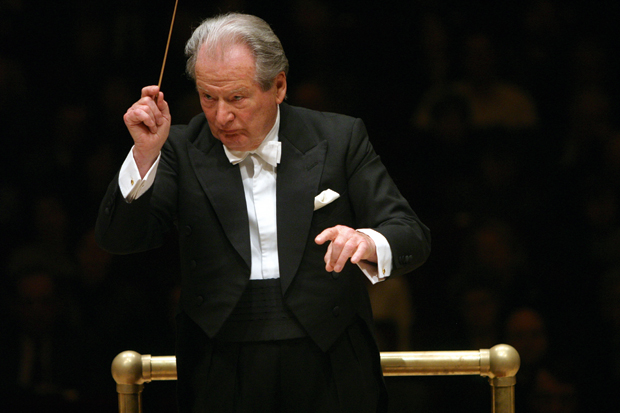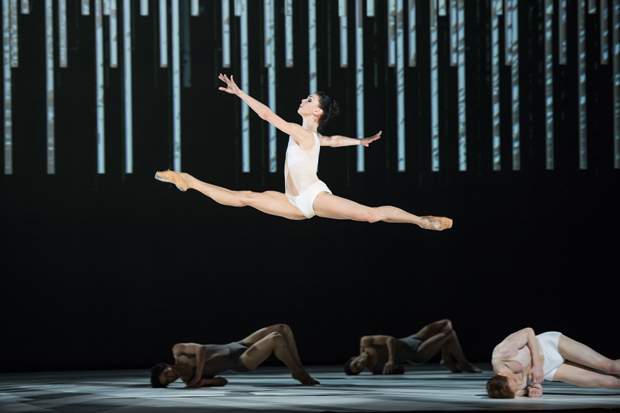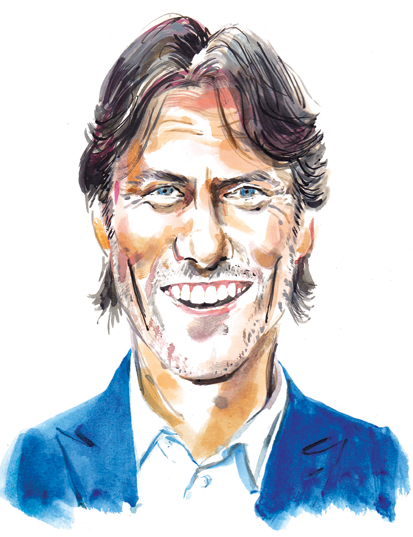‘It’s a bad week. I gather we’ve lost one.’ Sir Neville Marriner, himself a huge name, is talking about the death of one of the world’s top conductors. Lorin Maazel, who died at home in Virginia at the age of 84, had led orchestras including the New York Philharmonic. He was still conducting this year. Last month, the Spanish conductor Rafael Frühbeck de Burgos died in Pamplona at the age of 80. Only a week earlier he had announced he had cancer and would have to retire. Conductors, it is no secret, enjoy long working lives — some have even passed away mid-performance. But what’s their secret?
This summer’s BBC Proms are celebrating four ‘birthday batonists’. Among them are the three knights, Sir Neville (90), Sir Roger Norrington (80) and Sir Andrew Davis (70). Each has been waving his baton — Sir Andrew just his hands since he got tennis elbow — in this country or abroad for half a century. Sir Neville, who made his name with the chamber orchestra the Academy of St Martin in the Fields, has recorded some 900 records and conducted 2,000 works and is still a guest conductor with several orchestras.
Compared with other musicians, he says, conductors are physically ‘fairly lucky’. ‘The upper half of your body is kept on the move. I still play tennis. Not very well. Only with the girls. I certainly notice it if I have two or three days away from the podium. I begin to miss it and think I ought to have some physical activity elsewhere.’ Although he is on his feet six hours a day, Sir Neville insists on standing. ‘I get a little depressed when I see a conductor beginning to sit down for rehearsals. You lose a certain amount of engagement with the players.’
Sir Roger, though, no longer stands during rehearsals, nor in certain performances — such as the St John Passion he’s conducting at the Proms. ‘I sit to rehearse nowadays,’ he tells me at his house in the Berkshire countryside. ‘I find it much less tiring. It’s not just to do with age — I can work better.’ And Sir Andrew, while agreeing that the profession is very good cardiovascularly, says that it’s terrible for the legs. ‘I had to have an artery bypass a few years ago because you’re either standing up in the same place or sitting on a stool — which is probably worse because it cuts into the circulation. So I try to walk at least a mile a day.’
Before training, aged 40, for three months as a conductor in Los Angeles, Sir Neville was a violinist. ‘Being a pianist or violin player is phenomenally difficult and doesn’t get any easier as you get older. Physically, and technically too. You suddenly realise the limitations — if you just get arthritis in one hand you’re pretty well doomed.’ Sir Roger, who was also a tenor for many years, began conducting professionally at 28 but his big breakthrough came at 50. He is known for his historically informed performances.
‘Musicians,’ he says, ‘clearly tail off at a certain point and if they’re sensible they stop playing. Fifteen years ago I couldn’t have played the violin any longer because I had a neck operation and my hand’s a little bit arthritic. And I couldn’t possibly sing. I’d have had to retire and just teach, but [as a conductor] I’m as good as new now at 80.’ He’s cutting his work from 26 to 24 weeks a year, but, when he’s not conducting, he’s preparing scores or attending to business.
Conducting a concert, says Sir Roger, is not very exhausting. Rehearsals, though, are ‘very tiring. You’re going down a motorway the wrong way and trying to get all the cars to turn round and go your way. And they keep coming at you. In a concert you sit in the bus, slightly higher, and go along in convoy with all the cars going the right way. So it can be remarkably untiring. Particularly nowadays when I don’t put unnecessary emotion in it. I can use technique — more than just wishing it to be right I can know it’s going to be right. If everything is going well it’s a piece of cake. People afterwards say, “You must be so tired!” — no, I’m not tired at all actually. Want to go to a club?’ he says and laughs.
Sir Neville is also kept young through mental effort. ‘Intellectually it’s a fairly engaging profession and I don’t think your mind rests very frequently. From one day to the next you’re always thinking about what’s happening tomorrow.’ Passion helps too. ‘The music keeps us going,’ says Sir Andrew, who has been puffing on a cigarette (he smokes five or six a day). He’s just stepped off a plane from the US, where he is principal conductor of Lyric Opera of Chicago, and straight into a rehearsal with the BBC Symphony Chorus. He’s in the middle of a frantic few weeks of work in Germany, Australia, America, Edinburgh and London, and is leading the Melbourne Symphony Orchestra in its Proms debut. ‘Conducting is meat and drink to me. I love it. It’s FANTASTIC. Perhaps the most important thing is to make an orchestra or a chorus love it. It’s a hard life for an orchestral player. They’re churning out new programmes every week, or sometimes more often than that.’
Conducting, says Sir Andrew, is not simply a matter of waving your arms around. ‘It’s hard and doesn’t get any easier. Probably because one gets more self-critical, or you get wiser so when things don’t go the way you wanted you’re more frustrated.’ But for Sir Neville, it has become easier. ‘Much. It doesn’t matter how grand the orchestra is, they know you’ve been there, done it before and you know exactly what their problems and aspirations are. So they don’t test your mettle at all. When you’re a young conductor, it’s very hard because everyone in the orchestra thinks, “My God! I could do better than that.” Sir Roger, who says he tries to earn rather than command respect, agrees. ‘When you’re older they’re all younger than you and they think, “Well, he must be good — he’s been around such a long time, I had his records when I was 16.” It’s an absolutely tremendous advantage.’
There are no signs that Sir Neville will be stepping down from the podium imminently. But is it really not physically harder in his tenth decade? ‘I suppose you do notice it. I used to be able to do ten concerts in a tour, travelling every day. I would like to have a day off in the middle now.’ Some decline! Sir Andrew, meanwhile, would like to continue until he becomes senile or physically incapacitated. He certainly doesn’t want to die on the job. ‘They say, “Oh that must be wonderful.” The poor [audience]!’
Sir Roger will work so long as he’s useful. ‘I’m not going to insist the world needs me like some people I’m afraid do. Go on and on and on. After next year I’m halving my workload. But you can go on. And you don’t need to be frightfully flashy, physically. You really don’t need an awful lot. You think you do when you’re young. But what you have is this incredible wealth of experience and that’s what you want from a conductor. You want it to be deep and have meaning and the older you get the better you get at that.’
Got something to add? Join the discussion and comment below.
Get 10 issues for just $10
Subscribe to The Spectator Australia today for the next 10 magazine issues, plus full online access, for just $10.
All three conductors appear at the 2014 BBC Proms: www.bbc.co.uk/proms
You might disagree with half of it, but you’ll enjoy reading all of it. Try your first month for free, then just $2 a week for the remainder of your first year.














Comments
Don't miss out
Join the conversation with other Spectator Australia readers. Subscribe to leave a comment.
SUBSCRIBEAlready a subscriber? Log in